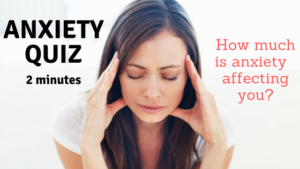
Ketamine-assisted psychotherapy is a relatively new form of treatment for mental health disorders that has gained popularity in recent years. It involves the use of the anesthetic drug ketamine, which is administered under controlled conditions while the patient is undergoing therapy with a trained mental health professional.
Ketamine-assisted psychotherapy is gaining popularity as a treatment for mental health disorders due to its potential to provide rapid relief from symptoms such as depression, anxiety, PTSD, and addiction.
Unlike traditional talk therapy, which can take months or even years to produce results, ketamine-assisted psychotherapy may produce improvements in mood and emotional resilience within hours or days of treatment.
Learn more about our ketamine-assisted psychotherapy program, Calliope Health.
In this article, we will explore what ketamine-assisted psychotherapy is, how it works, and the potential benefits and risks associated with this treatment. We will also discuss the current state of research on ketamine-assisted psychotherapy and provide a step-by-step guide to what patients can expect during a therapy session.
By the end of this article, you will have a better understanding of this innovative and potentially life-changing treatment for mental health disorders.
What is Ketamine?
Ketamine is a powerful medication that was first developed in the 1960s as an anesthetic for use in surgery. It is a dissociative anesthetic, which means that it can produce feelings of detachment from reality and a loss of sensation in the body.
Ketamine has a long history of use in the medical field, and it is currently approved by the U.S. Food and Drug Administration (FDA) for use as an anesthetic and pain reliever. In addition to its use in surgery, it is also used as a sedative in intensive care units and emergency rooms.
Ketamine has gained attention in recent years as a potential treatment for mental health disorders, particularly depression, anxiety, and post-traumatic stress disorder (PTSD).
The use of ketamine for these purposes is sometimes referred to as ketamine-assisted psychotherapy, and it involves administering the drug in a controlled setting under the supervision of a trained medical professional.
Ketamine-Assisted Psychotherapy
Ketamine-assisted psychotherapy (KAP) is a type of treatment for mental health disorders that combines the use of the anesthetic drug ketamine with traditional talk therapy.
Unlike traditional talk therapy, which relies on the verbal exchange between patient and therapist to explore emotions, thoughts, and behaviors, KAP includes a pharmacological component that can facilitate a deeper exploration of the patient’s inner world.
One of the key differences between traditional talk therapy and ketamine-assisted psychotherapy is the speed and intensity of the therapeutic process.
Traditional talk therapy can take months or even years to produce meaningful change, while ketamine-assisted psychotherapy can produce rapid and significant improvements in mood and functioning after just a few sessions.

This is because ketamine has been shown to have powerful antidepressant and anxiolytic effects, which can help to quickly alleviate symptoms of depression, anxiety, and other mental health disorders.
Another key difference between traditional talk therapy and ketamine-assisted psychotherapy is the way that the therapy is conducted. In traditional talk therapy, the therapist and patient sit in a room and engage in a dialogue that is meant to help the patient gain insight into their emotions and behaviors.
Learn more about our ketamine-assisted psychotherapy program, Calliope Health.
In ketamine-assisted psychotherapy, the patient receives a low dose of ketamine, typically through an IV infusion, and is guided through a journey of self-exploration by the therapist.
During this journey, the patient may experience altered states of consciousness that can help them to gain new insights into their thoughts, emotions, and behaviors.
The benefits of ketamine-assisted psychotherapy as a treatment for mental health disorders are many. One of the primary benefits is the rapid and significant improvement in mood and functioning that patients can experience after just a few sessions.
This can be particularly important for patients who are experiencing severe symptoms of depression or anxiety and are struggling to function in their daily lives.
Another benefit of KAP is that it can provide a unique and powerful tool for exploring the patient’s inner world. The altered states of consciousness that ketamine can produce can help patients to gain new insights into their thoughts, emotions, and behaviors, and to uncover the root causes of their mental health issues.
This can be particularly helpful for patients who have been stuck in negative patterns of thinking and behavior for years and have been unable to make progress with traditional talk therapy.
How Does Ketamine-Assisted Therapy Work?
Ketamine works by blocking NMDA receptors in the brain, which in turn affects the release of the neurotransmitter glutamate. Glutamate is a key player in the brain’s ability to process information and form new connections, so by altering its release, ketamine can have a profound impact on a person’s mood, thoughts, and behaviors.
Specifically, ketamine’s ability to block NMDA receptors leads to an increase in the production of another neurotransmitter called brain-derived neurotrophic factor (BDNF).
BDNF is critical for the growth and survival of neurons in the brain, and it’s also involved in the formation of new synapses (the connections between neurons).

By increasing BDNF levels, ketamine can help promote the growth of new neurons and synapses, which may help to counteract the negative effects of mental health disorders.
Additionally, ketamine has been shown to reduce inflammation in the brain, which is believed to play a role in the development and maintenance of mental health disorders. By reducing inflammation, ketamine may help to alleviate symptoms such as anxiety and depression.
It’s important to note that the exact mechanisms by which ketamine works to treat mental health disorders are still being studied, and researchers are working to better understand the complex interactions between neurotransmitters, receptors, and brain circuits.
Nonetheless, the evidence so far suggests that ketamine can have a profound impact on a person’s mental health, particularly when used in combination with psychotherapy.
Learn more about our ketamine-assisted psychotherapy program, Calliope Health.
The Ketamine-Assisted Psychotherapy Process
Ketamine-assisted psychotherapy involves a unique process that differs from traditional talk therapy. Here’s a step-by-step guide to what patients can expect during a ketamine session:
- Pre-Treatment Preparation: Prior to the treatment session, patients typically meet with their therapist to discuss their mental health history and current symptoms. The therapist will also provide detailed instructions on how to prepare for the ketamine infusion, including dietary restrictions and medication adjustments.
- Administration of Ketamine: Ketamine is typically administered through an IV infusion that takes place in a comfortable and private setting. During the infusion, patients are carefully monitored by medical professionals to ensure their safety and comfort.
- Altered State of Consciousness: As the ketamine begins to take effect, patients may experience an altered state of consciousness that is different from traditional talk therapy. Some patients describe feeling a sense of detachment from their physical body or a heightened awareness of their thoughts and emotions.
- Therapeutic Exploration: During the altered state of consciousness, patients work with their therapist to explore their thoughts, emotions, and behaviors. The therapist may use a variety of techniques to facilitate this process, including guided imagery, music therapy, and mindfulness practices.
- Integration: After the ketamine infusion is complete, patients typically spend some time resting and reflecting on their experience. The therapist then works with the patient to integrate insights gained during the session into their daily life and develop coping strategies for managing their symptoms.
Risks and Side Effects of Ketamine-Assisted Psychotherapy
Like any medical treatment, ketamine-assisted psychotherapy carries potential risks and side effects that patients should be aware of before undergoing the treatment.
One potential side effect of ketamine-assisted psychotherapy is dissociation. Dissociation is a mental state in which a person feels disconnected from their surroundings, themselves, or reality.
This can manifest as feelings of detachment, depersonalization, or derealization. While dissociation can be a therapeutic experience for some patients, it can also be distressing or uncomfortable for others.
During a ketamine-assisted therapy session, patients may experience dissociative symptoms as the drug takes effect. These symptoms typically last for a few minutes to an hour and can include altered perceptions of time and space, visual or auditory hallucinations, and feelings of detachment from the body or surroundings.
While these symptoms can be alarming, they are usually temporary and will dissipate as the drug wears off.
Other potential side effects of ketamine-assisted psychotherapy may include:
- Nausea or vomiting
- Dizziness or lightheadedness
- Increased heart rate or blood pressure
- Headache
- Blurred vision or other visual disturbances
- Fatigue or drowsiness
It’s important to note that not all patients will experience these side effects, and that they are usually mild and short-lived. However, patients should still be aware of the potential risks and discuss them with their healthcare provider before undergoing ketamine-assisted psychotherapy.
In conclusion, while ketamine-assisted psychotherapy can be an effective treatment for mental health disorders, it is not without potential side effects.
Patients should be fully informed about these risks before deciding to undergo the treatment, and should discuss any concerns or questions with their healthcare provider.
Research and Evidence
Ketamine-assisted psychotherapy is a relatively new treatment option for mental health disorders, but it has been gaining traction due to its potential benefits. As such, research studies have been conducted to evaluate its effectiveness and safety.
A number of clinical trials have shown promising results for the use of ketamine-assisted psychotherapy in treating depression, anxiety, PTSD, and addiction.
For example, a study published in JAMA Psychiatry in 2018 found that ketamine-assisted psychotherapy was associated with significant improvements in depression symptoms compared to a control group that received a placebo treatment.
Another study published in the Journal of Psychopharmacology in 2019 found that ketamine-assisted psychotherapy was effective in reducing symptoms of PTSD in military veterans.
Furthermore, a number of studies have investigated the long-term effects of ketamine-assisted psychotherapy. A study published in the Journal of Affective Disorders in 2021 found that patients who received ketamine-assisted psychotherapy for depression experienced sustained improvements in mood and cognitive function up to three months after treatment.
Another study published in the Journal of Clinical Psychopharmacology in 2018 found that ketamine-assisted psychotherapy was associated with significant reductions in alcohol cravings and relapse rates in patients with alcohol use disorder.
Overall, the current state of research on ketamine-assisted psychotherapy suggests that it is a promising treatment option for a variety of mental health disorders. However, further research is needed to fully understand its long-term effects and potential risks.
It is important for patients to discuss the risks and benefits of ketamine-assisted psychotherapy with their healthcare provider and to carefully weigh the potential benefits against the potential risks before starting this treatment.
Learn more about our ketamine-assisted psychotherapy program, Calliope Health.
Is Ketamine-Assisted Psychotherapy Right for You?
Ketamine-assisted psychotherapy is a relatively new treatment for mental health disorders, and as such, it is not yet widely available or typically covered by insurance.
However, for those who are struggling with depression, anxiety, PTSD, or addiction, ketamine-assisted psychotherapy may offer a promising alternative to traditional talk therapy or medication.
If you are considering ketamine-assisted psychotherapy as a treatment option, it’s important to speak with a qualified mental health professional who has experience administering this type of therapy.
They can help you determine whether you are a good candidate for ketamine-assisted psychotherapy and guide you through the treatment process.
Some factors that may make ketamine-assisted psychotherapy a good option for you include:
- A history of treatment-resistant depression, anxiety, or PTSD
- A desire to try a new approach to therapy or medication
- A willingness to undergo the potentially intense and transformative experience of a ketamine session
- A lack of other viable treatment options
However, it’s important to note that ketamine-assisted psychotherapy may not be appropriate for everyone. Individuals with a history of substance abuse or addiction may not be good candidates for this treatment, as ketamine has the potential to be abused and can be habit-forming.
Additionally, individuals with certain medical conditions or taking certain medications may not be able to safely undergo ketamine therapy.
Ketamine-assisted psychotherapy shows promise as a treatment option for individuals struggling with mental health disorders, particularly those who have not found relief through traditional forms of therapy or medication.
As with any treatment, it’s important to carefully consider whether ketamine-assisted psychotherapy is right for you and to seek guidance from a qualified mental health professional.
By working with a skilled therapist and keeping an open mind, you may find that ketamine-assisted psychotherapy can offer a path towards greater emotional wellness and resilience.
If you or someone you know would like to learn more about our services relating to ketamine-assisted psychotherapy through the Calliope Health Clinic, you can contact us here or visit Calliope.Health.





 Ping. Ping ping ping. Swoosh. Ping.
Ping. Ping ping ping. Swoosh. Ping. It’s the hap-happiest season of all
It’s the hap-happiest season of all “Mental illness isn’t something that can happen to me. Not to my family.”
“Mental illness isn’t something that can happen to me. Not to my family.” It is no secret relationships take a lot of work: communication, dedication, trust, and friendship. Successfully navigating these waters also centers around personal mindfulness, that is the act of staying active and present in a situation. Mindfulness allows you to observe your thoughts and feelings from a distance without inherent judgment on the situation.
It is no secret relationships take a lot of work: communication, dedication, trust, and friendship. Successfully navigating these waters also centers around personal mindfulness, that is the act of staying active and present in a situation. Mindfulness allows you to observe your thoughts and feelings from a distance without inherent judgment on the situation.


 Do you struggle with social anxiety?
Do you struggle with social anxiety?